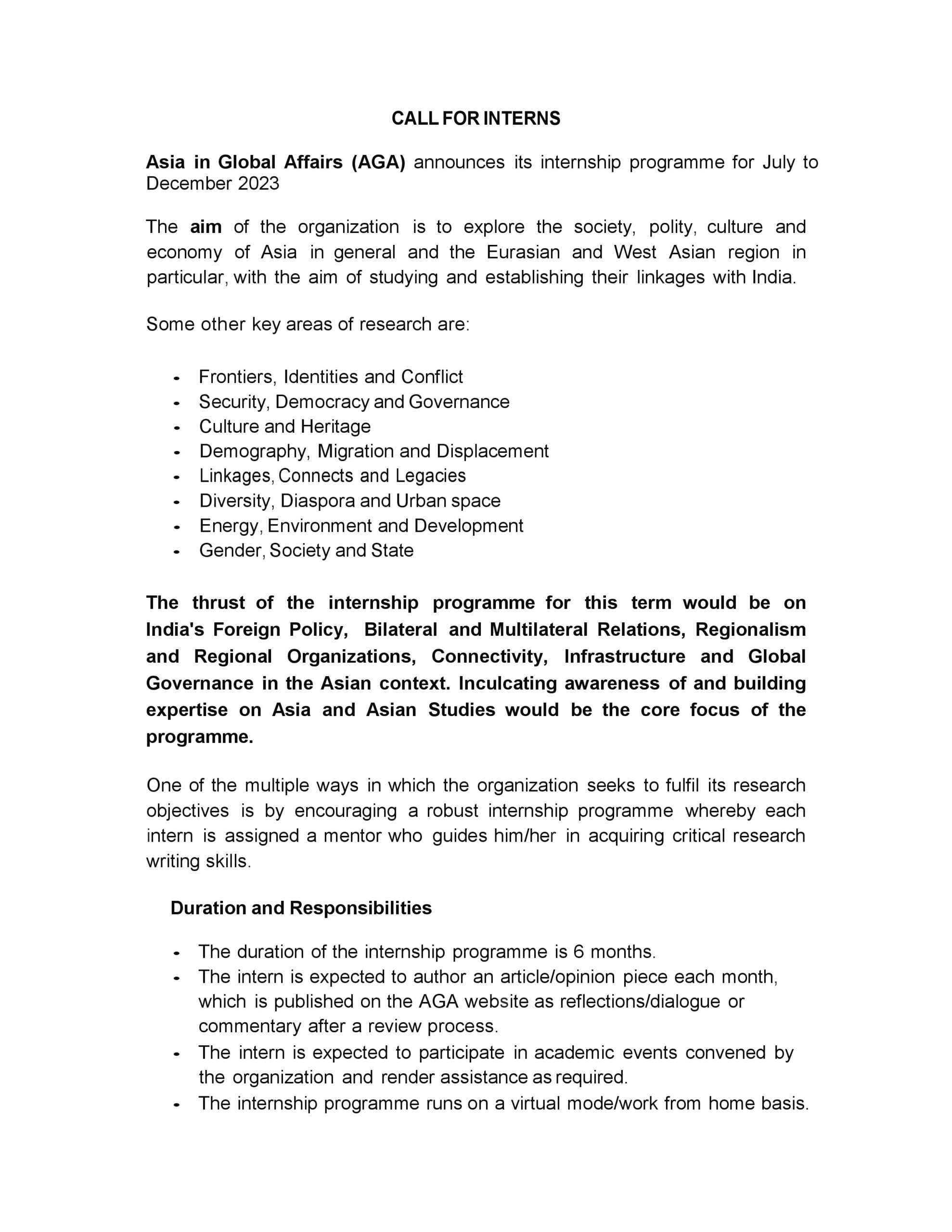Governing Body
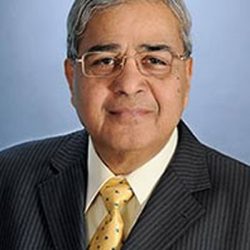
Sitaram Sharma
Hony. Consul of Republic of Belarus in Kolkata, Vice President, Indian Federation of United Nations Associations, New Delhi, Vice President (Strategy) Centre for Eastern and North Eastern Regional Studies (CENERS _ K), Editorial Advisor, Business Economics, Board of Governor, Institute for Inspiration and Self Development. Former Chairman, Maulana Abul Kalam Azad Institute of Asian Studies (MAKAIS), Former, Director, Regional office for Asia – Pacific of the World Federation of UN Associations, Geneva, Former, Deputy Secretary – General of the World Federation of UN Associations, New York. Publications : “UN : 100 Popular Questions & Answers, First Edition 1995, Second Edition 2000, Third Edition (2005)UN Popular Facts”(2014), West Bengal : Changing Colours, Changing Challenges, (Rupa Publication (2014) New Delhi).
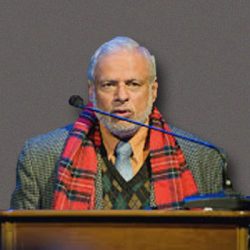
Ranabir Samaddar
Ranabir Samaddar is the Distinguished Chair in Migration and Forced Migration Studies of the Calcutta Research Group, and belongs to the school of critical thinking. He has pioneered along with others peace studies programmes in South Asia. He has worked extensively on issues of justice and rights in the context of conflicts in South Asia. The much-acclaimed The Politics of Dialogue (Ashgate, 2004) was the culmination of his work on justice, rights, and peace. His particular researches have been on migration and refugee studies, the theory and practices of dialogue, nationalism and post-colonial statehood in South Asia, and new regimes of technological restructuring and labour control. He authored a three-volume study of Indian nationalism, (Whose Asia Is It Anyway – nation and The Region in South Asia, 1996, The Marginal Nation – Transborder Migration from Bangladesh to West Bengal, 1999, and A Biography of the Indian Nation, 1947-1997, 2001). His recent political writings published in the form of a 2 volume account, The Materiality of Politics (Anthem Press, 2007), and the just published The Emergence of the Political Subject (Sage, 2009) have challenged some of the prevailing accounts of the birth of nationalism and the nation state, and have signalled a new turn in critical post-colonial thinking. Email : ranabir@mcrg.ac.in
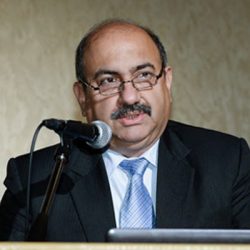
Sanjay Chaturvedi
Sanjay Chaturvedi is Professor of Political Science at the Centre for the Study of Geopolitics, Panjab University, Chandigarh. He specializes in the theories and practices of Geopolitics and IR, with special reference to Polar Regions and the Indian Ocean Region. Author of Polar Regions: A Political Geography (John Wiley & Sons, 1993), Chaturvedi is the co-author of Partitions: Reshaping Minds and States (Routledge, 2005, with Ranabir Samaddar, Rada Ivekovich and Stefano Bianchini); and co-editor ofEnvironmental Sustainability from the Himalayas to the Oceans: Struggles and Innovations in China and India (Springer, 2016, with Shikui Dong and Jayanta Bandyopadhyay), Geopolitical Orientations, Regionalism, and Security in the Indian Ocean (Routledge Revivals, 2015, with Dennis Rumley); Energy Security and the Indian Ocean Region (Routledge Revivals, 2015, with Dennis Rumley); The Security of Sea Lanes of Communication in the Indian Ocean Region (Routledge Revivals, 2015, with Dennis Rumley and Mat Taib); and Euro-Asia at the Crossroads: Geopolitics, Identities and Discourse (New Delhi: Shipra Publications, 2011, with Jyrki Kakonen and Anita Sengupta). His most recent co-authored books are: Climate Terror: A Critical Geopolitics of Climate Change (Palgrave Macmillan 2015, with Timothy Doyle) and Climate Change and the Bay of Bengal: Emerging Geographies of Hope and Fear (ISEAS Yusof Ishak Institute, Singapore, 2015, with Vijay Sakhuja).
Chaturvedihas been a member of the Steering Committee of the IGU Commission on Political Geography (2004-2012) and the Co-Chair of Research Committee on Political and Cultural Geography (RC 15) of International Political Science Association (2006-2012). He is serving on the Executive Committee of SCAR Antarctic Humanities and Social Sciences Expert Group (ex-officio) since its inception in 2010, representing the discipline of Geopolitics.A member of the Core Group of Experts on Antarctica and Southern Ocean, set up by the Ministry of Earth Sciences, Government of India, he has served on the Indian delegation to the Antarctic Treaty Consultative Meetings since 2007
Editor-in-Chief of Panjab University Research Journal (Social Sciences), Chaturvedi is the Co-Editor ofJournal of Indian Ocean Region (Routledge) and Regional Editor ofThe Polar Journal (Routledge). Heis also the editorial/advisory board member of Geopolitics (Routledge), Co-operation and Conflict (Sage), India Quarterly: A Journal of International Affairs (Sage), Journal of Global Faultlines (Pluto) and The Journal of Borderland Studies (Routledge).
Chaturvedi was awarded the Nehru Centenary British Fellowship, followed by a highly coveted Leverhulme Trust Research Grant, to pursue his post-doctoral research at Scott Polar Research Institute, University of Cambridge, England, from 1992 to 1995. Chaturvedi is recipient of several visiting professorships and fellowships abroad including Curtin University, Australia; University of Wurzburg, Germany under ‘A New Passage to India’ of DAAD (June-July 2016 & 2015); India-China Institute, The New School, USA (2010-13); The University of Adelaide, Australia; University of Cambridge, England (1992-95); ISEAS Yusof Ishak Institute, Singapore (2010-2012);Department of Geography at University of Durham, U.K.; Columbia University Institute for Scholars, Reid Hall, Paris (under International Program of Advanced Studies); Faculty of Law, University of Sydney, Australia; Ben Gurion University of the Negev, Israel (under Distinguished Visitors Program); and Henry L. Stimson Centre, Washington D.C., USA.
Chaturvedi has also been a Visiting Speaker at the National Defence College and Foreign Service Institute, New Delhi.He is a member of he Knowledge, Learning, And Societal Change Alliance (KLASICA), a global, impact-driven research and policy network for collective behaviour change for sustainable futures, hosted by the Institute for Advanced Sustainability Studies in Potsdam, Germany. More recently, he has been invited to serve on the Selection Committee of the Tinker-Muse Prize for Science and Policy in Antarctica, an annual USD $100,000 unrestricted prize awarded to an individual who has demonstrated excellence in Antarctic science and/or policy.
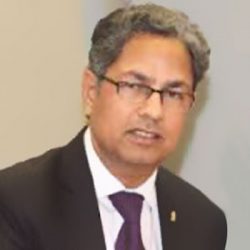
Swaran Singh
Swaran Singh is Professor of Disarmament Studies at the Centre for International Politics, Organisation and Disarmament (CIPOD), School of International Studies, Jawaharlal Nehru University (New Delhi). He is President of Association of Asia Scholars, General Secretary of Indian Association of Asian & Pacific Studies, Visiting Professor, China West Normal University and Guest Professor at Research Institute of Indian Ocean Economies (RIIO), Yunnan University of Finance and Economics (China), and Advisory Board Member of Atlanta-based Communities Without Borders Inc. He was Chief Vigilance Officer of his University (2012-15) and External Member to its Centre for East Asian Studies of JNU. Prof Singh has 25 years of experience in research and teaching and lectures at major institutions like National Defence College, Defence Services Staff College, and all other major military institutions as also Foreign Service Institute, Indian Institute for Public Administration etc. as also contributes to radio and television discussions. JNU has already awarded 24 PhDs and 42 M.Phils under his supervision and 14 research scholars are currently under his supervision. He is also on various Selection Committees for faculty recruitment and Advisor to Research Scholars in other universities and institutions.
Prof. Singh is formerly Visiting Professor, Australian National University (Canberra), Science Po (Bordeaux, France), Hiroshima University (Japan), University of Peace (Costa Rica), Peking, Fudan and Xiamen Universities, and Shanghai Institute of International Studies and Centre for Asian Studies (Hong Kong University) in China, Asian Centre (University of the Philippines), and Chuo and Kyoto Universities (in Japan), National Cheng Chi University (Taiwan) as also Guest Faculty at Stockholm International Peace Research Institute (Sweden). He was Academic Consultant (2003-2007)at Center de Sciences Humaines (New Delhi), and workedin various positions during 1992-2000 at Institute for Defence Studies and Analysis (New Delhi). He was Member of South Asia Review Committee (2007-2009) of Asian Scholarship Foundation (Bangkok). His lectures can be viewed on YouTube and his most recent research article on "State of India's Security Studies" published in recent issue of Millennial Asia (Sage, Sept-Nov 2015) at http://www.jnu.ac.in/Faculty/ssingh/State_of_Security.pdf
Prof Singh is on the Editorial Board of Asian Policy & Politics (Washington DC), Global Outlook (Univ of New York Tirana), Journal of the Indian Ocean Region (Hyderabad), Journal of Indian Ocean Studies (Delhi), and Millennial Asia (Delhi), Suraksha Chintan (Meerut) as also Referee on various academic journals. He also contributes to print and visual media including South China Morning Post (Hong Kong), China Daily and Global Times (Beijing), Tong Feng Zao Pao (Shanghai) and The Hindu, Indian Express and the New Indian Express (in India). He has published in Journal of International Affairs (Columbia University), Security Challenges (Australian National University), Journal of Indian Ocean Region (Perth, Australia), Issues & Studies (Taiwan National University), African Security (Institute of Security Studies), BISS Journal (Dhaka), Asian Studies Journal, Financial & Economic Review, Xiaman University Journal, International Studies (in China), and Strategic Analysis, USI Journal, Peace Initiatives, Journal of Indian Ocean Studies, Millennial Asia, Journal of Air Power Studies, South Asian Survey, Indian Defence Review, and China Report (in India).
Prof Singh travels and writes extensively on Asian Affairs, China’s foreign and security policy issues with special focus on China-India confidence building measures as also on Arms Control and Disarmament, Peace and Conflict Resolution, India’s foreign and security policy issues. He has co-edited BCIM Economic CorridorChinese and Indian Perspectives (Adroit 2017), Transforming South Asia: Imperatives for Action (2013); India and the GCC Countries, Iran and Iraq: Emerging Security Perspectives (2013), On China By India: From Civilization to State (Cambria 2012), Emerging China: Prospects for Partnership in Asia (Routledge 2012), Asia’s Multilateralism (in Chinese, 2012) published from Shanghai; Edited China-Pakistan Strategic Cooperation: Indian Perspectives (2007) Co-authored Regionalism in South Asian Diplomacy (SIPRI Policy Paper No. 15, February 2007) and authored Nuclear Command & Control in Southern Asia: China, India, Pakistan (2010), China-India Economic Engagement: Building Mutual Confidence (2005), China-South Asia: Issues, Equations, Policies (2003), China’s Changing National Security Doctrines (1999) and Limited War: The Challenge of US Milit2ary Strategy (1995). Prof Singh’s Twitter handle is: @SwaranSinghJNU
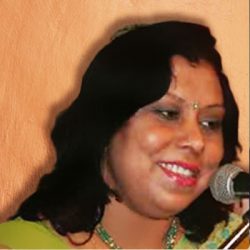
Paula Banerjee
Paula Banerjee, Vice Chancellor, Sanskrit University. She was previously Dean of Social Sciences, Calcutta University. She is an expert on Indo-American relations and studied in Cincinnati, Ohio. As part of her current work on borders and women, she has authored numerous papers on women in conflict situations in northeast India. She is Professor in the Department of South and South East Asian Studies, University of Calcutta. She has authored a book on Indo-US relations, titled When Ambitions Clash (2003), and has co-authored a book, Women in Society and Politics in France. Dr. Banerjee is the recipient of a number of international fellowships including the Advanced Taft Fellowship (1991-1993) and has been the recipient of the WISCOMP Fellow Of Peace Award (2001). Currently she is working on women in peace movements in South Asia and on borders and boundaries in the region. She is now the editorial board member of the Refugee Watch. She has authored and edited a number of books. Two of her most recent publications are The State of being Stateless: An Account of South Asia (co-edited with Atig Ghosh and Anasua Basu Ray Chowdhury, 2016), Unstable Populations, Anxious States: Mixed and Massive Flows in South Asia (2013).
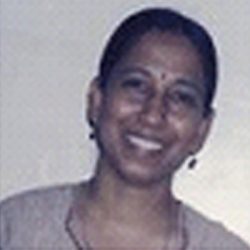
Soma Ghosal
Soma Ghosal is an Assistant Professor of Political Science with SRSVM, Kamarpukur, Hooghly. She is doing her doctoral studies on the border tribes on India's northeast and Myanmar. She was earlier a Project Fellow with the Maulana Abul Kalam Azad Institute of Asian Studies, Kolkata. Her areas of interest have been the problems of narcotics in Manipur and its socio-political impact. She had undertaken a field trip to the Moreh border in 2002 and has a publication to the effect titled "The Politics of Narcotics in India's Northeast."

Paramita Ray
Paramita Ray graduated from Presidency College , Kolkata with Hons . in English and thereafter did her post graduation from Jadavpur University, Kolkata.In both her B.A. and M.A. she was placed first class second in the University. For her B.A. (Hons) result she was awarded the National Scholarship by the Govt. of India.She then did hereB.Ed and began her teaching career at Ibn Seena School Sharjah((UAE), where she taught classes 8, and 9. She then joined Sardar Patel Vidyalaya a reputed school in Delhi, and taught classes 11 and 12, English Core for 29 years. She was the class teacher of class 11 and 12 and also the Cultural Co Ordinator of the school for 6 years, and managed all the school's co-curricular activities.She was part of a 4 teacher delegation from the school that was sent to Denmark on an Exchange Programme, sponsored by the Danish Government.She also organised and accompanied a school group to Pakistan in 1997, where they were hosted by Nawaz Sharif, the then PM . Paramita has compiled a book of poems 'Poem Pourri' for class 6 and a book of short stories for class 8 students, called 'A Few Fine Yarns', both of which are used in her school. She has also done a set of 3 books for class 7 and 8 for Pearson Longman. She has been a CBSE Head Examiner for class 12 evaluation in English for several years and has also conducted workshops for students and teachers.She has been involved in school admissions for all classes from Nursery to class 12 and also been on the panel for selection of English and History teachers for classes 10 and 12. Paramita received a certificate of merit from Smriti Irani, the then Education Minister, for the outstanding result of her class in the Board Exams.She has worked with the NCERT on revsion of texts in English for class 8 and done radio shows on English teaching for them.She has been invited to adjudge inter school debates and elocution contests. Music, reading and travelling are her passions.

Manisha M.
Manisha M. is an Associate Professor and Head of Department of Political Science, SNDT Women’s University, Mumbai. She is a Doctorate from Jadavpur University, Kolkata with over 17 years of teaching and research experience in institutions across the country including Loreto College, Kolkata, TISS, Mumbai and Centre for Research in Social Sciences and Education, Bangalore. Her areas of specialization include, Indian Politics, Democracy and institutional studies, Political parties, Legislative institutions and Electoral Democracy. She has co-edited a book entitled, “Indian Democracy: Problems and Prospects” published by Anthem Publishers and has several articles in journals and magazines. She has been awarded fellowships by Indian Council of Social Science Research for her work on ‘Social Bases of State Parties and their Legislative Performance’, and by the Rajya Sabha for her study on “Role of Opposition in India; A Comparative Study of Second and Fourteenth Lok Sabha.” She has been the recipient of European Union Visitors Award. She has presented papers in national and international conferences including those organised by Sciences Po Paris, La fabrique da loi, European Parliament, International Political Science Association, etc. She regularly conducts workshops for faculty members of Colleges, Research Scholars, and Corporates. At present, apart from her teaching assignments she is working on two ICSSR Sponsored Research Projects granted on 'Determining Quality in Higher Education'.
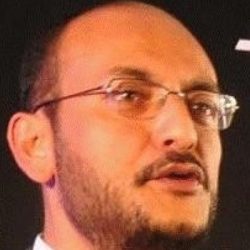
Jay Vikram Bakshi
Jay Vikram Bakshi is an Economics graduate from St Xaviers, Kolkata and has a certificate in financial management from the Indian Institute of Management, Calcutta. Jay is a Venture Catalyst, Entrepreneur mentor, Brand communications strategist, Social Media Maven, CSR Trainer based in Gurgaon, India. Jay founded DIGIQOM SOLUTIONS, a leading Marketing Communications Group, which facilitates companies and brands across the world to co–create their corporate reputations and brand experiences with target communities. Jay has a significant track record in media, advertising, IT, Telecom, and software, with deep domain knowledge in Telecom Software, B2B marketing and B2C brand creation. Jay is quoted in media for telecom policy, marketing and retail innovation, social media and entrepreneurship. He is also a featured speaker at IIT-Delhi, FMS- Delhi and MDI, Gurgaon. His specialties include Global Brand Launches, Branding and Identity, Technical documentations, Marketing communications, Corporate communications, Media relations, IPO communications, Crises Management, CxO Mentoring for Public affairs, Industry Associations/Analyst Relations, Corporate Social Responsibility, Mergers and Acquisitions, Business Closure, Online communities, Intranets and web marketing, Pre-sales process outsourcing, lead generation campaigns, lead management solutions and social media marketing.
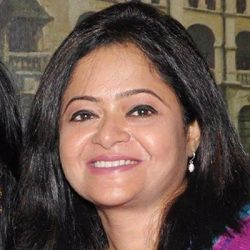
Mousumi Gupta
Mousumi Gupta is a graduate from Shri Shikshayatan College, Kolkata. She is an educationist with a diploma in Montessori teaching. She has also been part of the travel and tourism industry in various senior capacities for almost two decades. Mousumi is known for her organizational abilities and is proficient in English, Bengali and Hindi.

